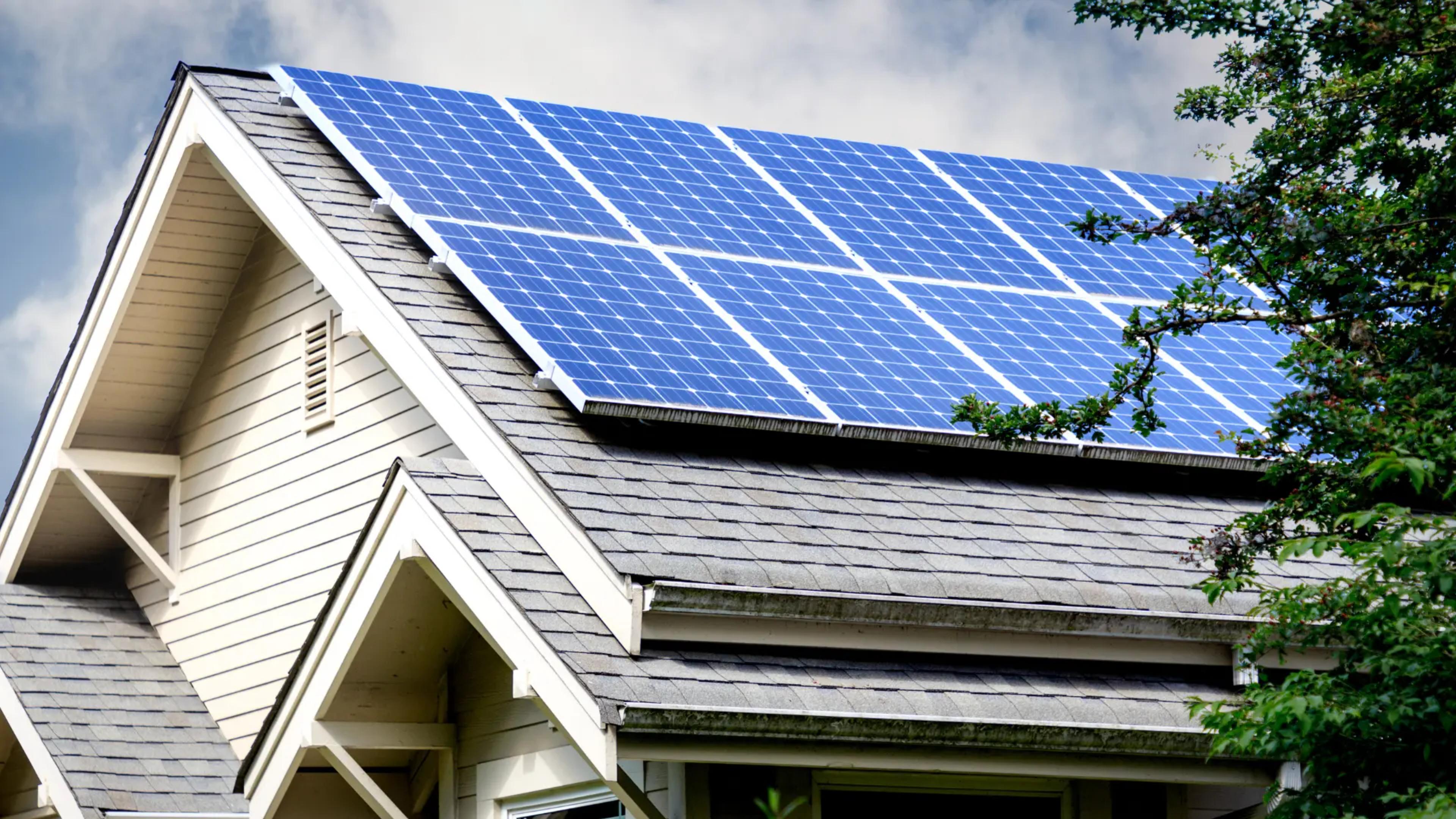Experience Budget-Friendly Clean Energy with Simply Solar Illinois
Experience Budget-Friendly Clean Energy with Simply Solar Illinois
Blog Article
Just How Solar Energy Can Help You Save Money and Reduce Your Carbon Footprint
The combination of solar power into your power profile presents a compelling opportunity for both monetary savings and environmental stewardship. By using the sunlight's power, homeowners can significantly reduce their regular monthly energy expenditures while additionally securing against the unpredictability of future power costs. Moreover, the shift to solar adds to a marked decline in carbon discharges, lining up individual money with wider ecological goals. As different government incentives appear, the question emerges: exactly how can one efficiently browse the initial financial investments and continuous benefits of solar modern technology to take full advantage of both economic and ecological gains?
Recognizing Solar Power Cost Savings
While the change to solar power usually entails an initial investment, recognizing solar power financial savings is crucial for homeowners and businesses alike. Solar energy systems can significantly reduce electrical power expenses by utilizing the sun's energy, converting into significant lasting monetary benefits.
Furthermore, solar power systems might get various economic motivations, including tax credit scores and rebates, further boosting their cost-effectiveness. The schedule of net metering enables users to offer excess power back to the grid, producing an additional earnings stream. These aspects contribute to the general cost savings associated with solar power.

Along with guide monetary cost savings, solar power uses the included benefit of boosting building value. Homes geared up with solar panels are typically a lot more attractive to customers, as they promise reduced power prices - Simply Solar Illinois. Recognizing these components is crucial for anyone thinking about solar power, as it highlights not simply the possible economic gains, but likewise the wider environmental and financial benefits of embracing renewable resource services
Initial Prices vs. Long-Term Conveniences
When examining solar power, it is necessary to consider the first expenses against the lasting advantages. The upfront investment for photovoltaic panels, installation, and associated devices can be substantial, often varying from $15,000 to $30,000, depending on the system size and home energy demands. This first expenditure may deter some property owners; however, it is crucial to consider the possible financial savings gradually.
Once mounted, solar power systems can significantly decrease or perhaps remove monthly electrical energy bills, causing considerable long-lasting economic benefits. Studies indicate that house owners can conserve anywhere from $10,000 to $30,000 over the life-span of their planetary system, normally 25 years. In addition, lots of states offer motivations, tax debts, and discounts that can offset first prices, making solar a lot more easily accessible.

Decreasing Your Carbon Footprint
Lowering your carbon footprint is a vital factor to consider in today's environmentally mindful society, and adopting solar power is just one of the most reliable approaches to attain this goal. Solar energy is a tidy, renewable energy that significantly lessens dependence on fossil fuels, which are significant contributors to greenhouse gas exhausts.

Additionally, the prevalent fostering of solar innovation urges the growth of environment-friendly jobs and sustains advancements in power storage space and effectiveness. The more people and organizations purchase solar energy, the greater the collective reduction in carbon discharges, fostering a cleaner environment for future generations.
Federal Government Rewards and Refunds
Embracing solar energy not find out here just benefits the setting however can additionally bring about significant economic savings, particularly with the schedule of government motivations and rebates. Various federal, state, and local programs are designed to urge house owners and organizations to invest in solar energy systems, making the change extra budget friendly.
One of one of the most noticeable motivations is the Federal Investment Tax Credit History (ITC), which permits planetary system proprietors to deduct a considerable percent of the setup prices from their federal tax obligations. This motivation has been crucial in decreasing the upfront expenses connected with solar power systems. Furthermore, many states offer their own tax credit scores, gives, and rebates that can better enhance cost savings.
Moreover, some regional governments provide home tax exemptions for solar setups, making sure that property owners do not encounter raised real estate tax as an outcome my website of their renewable resource financial investments. Energy business may likewise provide incentives, consisting of net metering and feed-in tariffs, which allow solar energy customers to offer excess power back to the grid.
Choosing the Right Planetary System
Picking the ideal solar system is critical for maximizing energy performance and financial advantages. The decision pivots on numerous variables, including energy demands, budget plan, and readily available area. Property owners must begin by analyzing their electrical power intake to identify the system dimension needed for optimum performance.
Next, think about the various kinds of solar innovations offered. Simply Solar Illinois. Photovoltaic (PV) panels are the most typical, transforming sunlight directly right into power, while solar thermal systems concentrate on heating water. Each kind has unique benefits depending on specific needs
Budget plan factors to consider are also vital. Preliminary setup prices can differ considerably, so it is necessary to contrast quotes from multiple companies and explore financing choices. Federal government motivations and refunds can even more lower the economic worry, making solar systems more easily accessible.
Verdict
The ecological advantages of solar energy add to sustainable practices critical for combating environment adjustment. Government motivations look at these guys improve the usefulness of solar technology fostering, motivating a transition towards a cleaner, a lot more economically effective energy resource.
Report this page